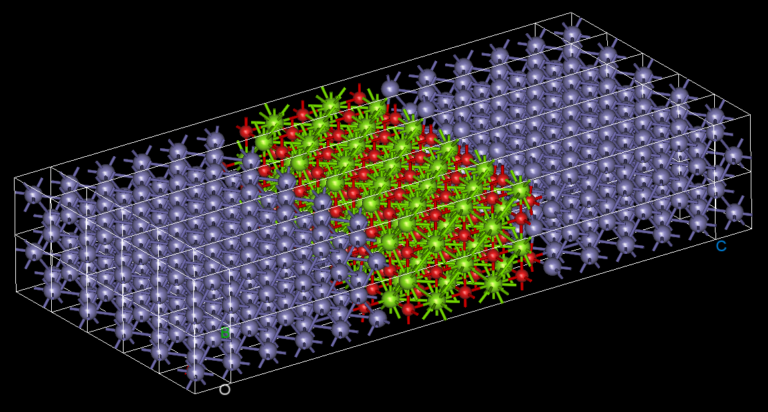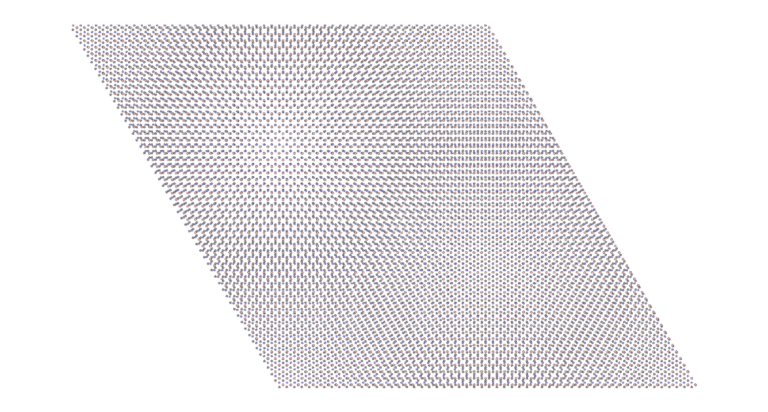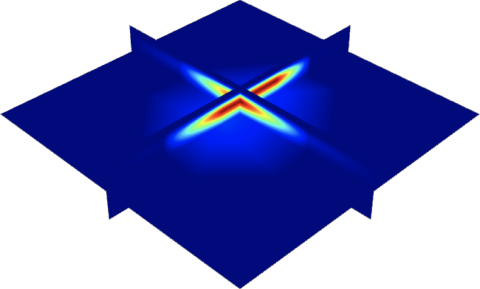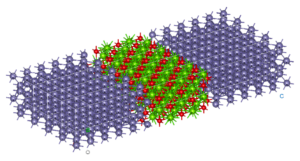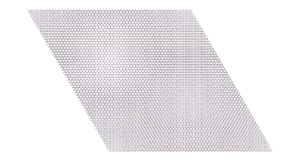Nanoacademic
Nanoacademic’s software enables the prediction of properties and performance of next-generation materials and quantum devices.
Utilized globally by universities, government labs, and private companies, Nanoacademic’s software reduces development costs and time-to-market while unlocking new possibilities through powerful in-silico simulations.
Our history
Nanoacademic founded by Prof. Hong Guo (McGill University), Dr. Yu Zhu, and Dr. Lei Liu.
First NanoDCAL release.
First NanoBASE release.
First NanoDSIM release.
Publishing of the book “Atomistic Simulation of Quantum Transport in Nanoelectronic Devices” which describes NanoDSIM and the theory behind it.
First RESCU release.
First RESCU-DFPT innovative method release.
QTCAD® was released (v1.0).
Our Values
Professionalism and integrity
Commitments
We are Scientists
Performance

Jobs Offers
CareersSpontaneous application
Spontaneous application
Write to us at the following address: info@nanoacademic.com
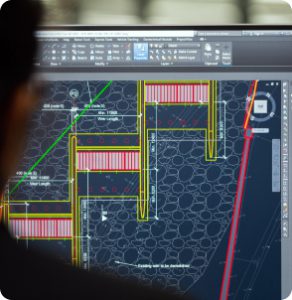
Our Team
We are a team of scientists who are passionate about physics, mathematics and software tool development.Félix BeaudoinPh. D.
CEO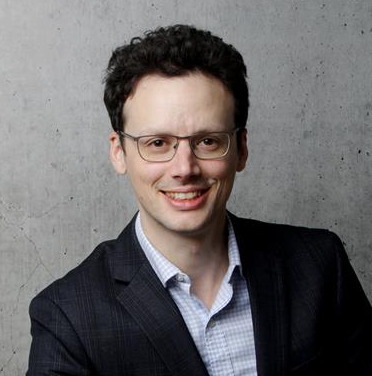
Dr. Beaudoin first obtained an M. Sc. in theoretical physics from Université de Sherbrooke under the supervision of Prof. Alexandre Blais, followed by a Ph.D. in theoretical physics from McGill University with Prof. William A. Coish. Dr. Beaudoin then worked as a postdoctoral associate and university lecturer at Dartmouth College in the research group of Prof. Lorenza Viola, in close collaboration with the Quantum Information and Integrated Nanosystems Group led by Prof. William D. Oliver (Massachusetts Institute of Technology). Dr. Beaudoin cumulates over 15 years of research experience in the field of quantum technology, with more than 20 scientific publications in peer-reviewed journals on quantum noise, quantum control, quantum metrology, and modeling of spin qubits and superconducting qubits alike.
He joined Nanoacademic in 2019 as a Research Scientist and then took over the Quantum Technology team as its Director. From February 2025, with a wealth of experience in quantum science and after managing the development of Nanoacademic’s unique qubit-modeling software QTCAD® for the last five years, he will be driving Nanoacademic’s product innovation and strategic expansion in quantum technology.
Yu (Eric) ZhuPh. D.
President and Co-founder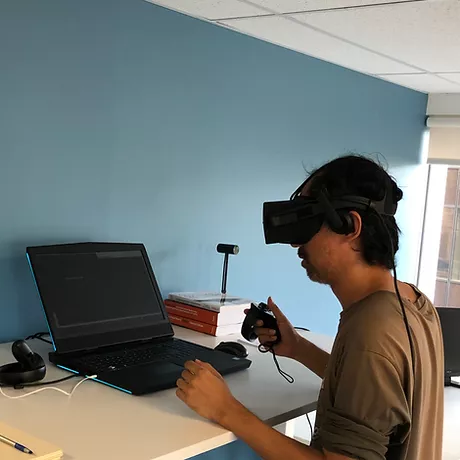
Dr. Zhu obtained his Ph.D in 2003 in quantum transport theory from Peking University, Beijing. After working several years at McGill University in Canada and the University of Hong Kong, he became a founding member of the Nanoacademic team. Dr. Zhu is an expert of first principles theory, Green function theory, DFT, electronic structure theory and methods, as well as modeling of quantum transport in nanostructures.
From February 2025, Eric acts as the new President of the firm; his unrivaled experience in atomistic software development, quantum transport theory, and artificial intelligence will enable him to lead the atomistic software division of Nanoacademic into new, unique and exciting territory.
Jeremy F. GaraffaM. Sc.
VP of Sales and Partnerships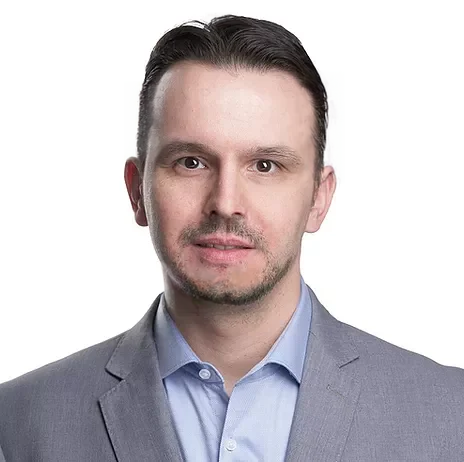
Mr. Garaffa obtained a Master’s degree in Microelectronics Engineering from L’École des Mines de Saint-Etienne in 2008, followed by a Master’s Degree “MINELEC” in Physics of Nanoelectronics from Aix-Marseille University completed with a Master’s Degree in complex sales and marketing from IAE Lyon Institute of Business Administration and Jean Moulin University Lyon3. He then worked in the electronics, microelectronics, nanomaterials, specialty ultrapur minor metals and composites industries in France, Switzerland and Canada while managing development of up to $25m+ business units oriented towards engineering and manufacturing services. He managed key accounts and global marketing strategies in start-ups and international groups at Director level with teams of experts under his supervision addressing sectors such as Aerospace, Medical Technologies, Robotics, Telecommunications, Security, Luxury goods and Automotive among others for customers located in dozens of countries worldwide.
He joined Nanoacademic in 2021 as Director of Sales and Marketing in charge of developing a coherent international marketing strategy to leverage the sales streams of our atomistic and quantum software QTCAD® within our SaaS strategy, plus our scientific consultancy services to public and private R&D clients worldwide.
From February 2025, Jeremy will continue his outstanding work toward the expansion of our company’s global commercial reach and development of new consulting services, software license sales, and strategic partnerships in materials science and quantum technologies.
Guillaume Quenneville-HimbeaultB. Sc.
COO
Mr. Queneville-Himbeault obtained a Bachelor’s in Mathematics and Computer Science from Université de Montréal. His degree was preceded by 9 years of military service as a system administrator with a focus on networking and radio-frequency communications.
He joined Nanoacademic in 2021 as Software Developer focusing on HPC, build systems, automated testing, databases, and back-end web development. Then as our Director of IT he oversaw building and maintaining CI/CD pipelines as well as developing and managing other key infrastructures in technical and marketing support of Nanoacademic’s software and services for four years.
From February 2025, Guillaume is stepping up as Chief Operations Officer of Nanoacademic. With deep expertise in software engineering and infrastructure, Guillaume will be leading key initiatives, including GUI development, packaging, CI/CD, and our client portal, in addition to bringing our software performance to the next level. Guillaume’s leadership will ensure that our development pipelines remain efficient, scalable, and aligned with our customers’ needs.
Liang YueB. A.
Account & Office Manager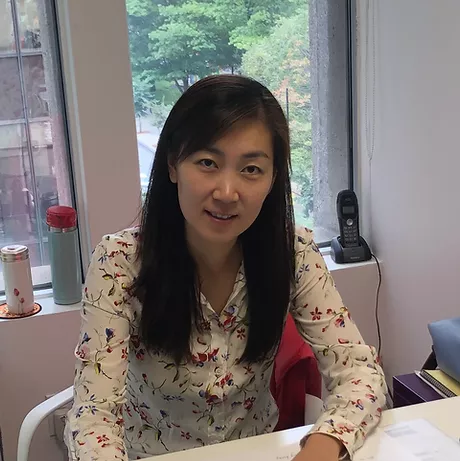
Mrs. Yue got her B.A. in Chinese literature and drama from the Central Academy of Drama and certificates for proficiency in French and English as a second language from the UQAM. She joined Nanoacademic in 2008 and has served as an account manager since then.
Wanting ZhangPh. D.
Software Testing Engineer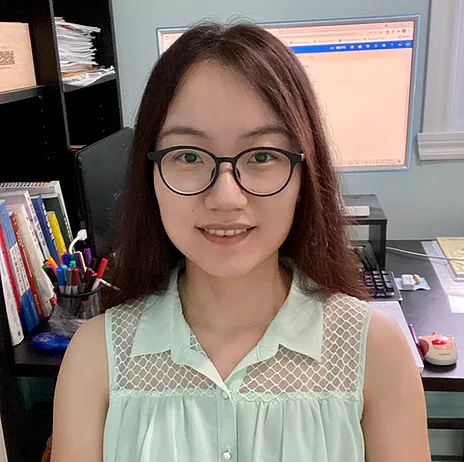
Dr. Zhang obtained her Ph.D. from China University of Mining and Technology-Beijing in materials science and engineering, specializing in multi-scale modeling and simulation of wear and friction in composite materials using FEA and MD. She has worked in a major automotive company for two years, where she gained significant experience in calculating the durability performance of industrial models and developed an FEA automatic analysis system for automobiles based on the HyperMesh platform.
Since joining Nanoacademic in 2021, she has led the development of pyAODB, a Python-based automation platform optimizing numerical atomic orbital (NAO) functions for DFT simulations, enabling large-scale material modeling. She is responsible for software verification, debugging, and performance optimization, ensuring the reliability and efficiency of Nanoacademic’s simulation tools while continuously improving their Python interface and documentation. She has also developed the AI interface connecting Nanoacademic’s atomistic simulation tools to AI-driven universal atomic potential models, enhancing material modeling capabilities. As a key technical support member, she engages directly with customers to address R&D challenges, refine simulation tools, and improve overall user experience. Her expertise in multi-scale simulation and software optimization strengthens Nanoacademic’s position in computational materials science.
Pericles PhilippopoulosPh. D.
Research Scientist | Scientific Software Developer
Dr. Pericles Philippopoulos obtained his PhD in Physics from Prof. William Coish’s group at McGill University in 2020. The focus of his work was to gain a better understanding of spin interactions, specifically hyperfine and spin-orbit couplings, in semiconductor nanostructures. Dr. Philippopoulos also has experience using first-principles methods (DFT) to calculate fundamental properties (e.g. hyperfine couplings, electric-dipole moments) for electrons and holes in semiconductors.
He joined Nanoacademic in 2020. Since then he has been working on developing features (e.g. valley-coupling, EDSR) and modeling tools for the QTCAD software.
Aldilene Saraiva-SouzaPh. D.
Research Scientist | Scientific Software Developer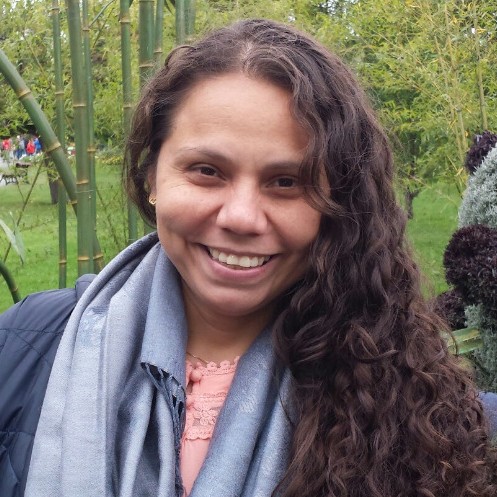
Dr. Saraiva-Souza obtained her Ph.D. in computational condensed matter physics from Universidade Federal do Ceará, Brazil in 2012, with a Doctoral Stay in Prof. Mark Ratner’s group in the Department of Chemistry at Northwestern University. In 2013, she started as a postdoctoral fellow in the Department of Physics at McGill University within the quantum electronic transport group led by Professor Hong Guo. Her specialization is in electronic structure calculations and simulation of electronic transport properties of nanoscopic devices.
She joined Nanoacademic Technologies Inc. in 2022 as an external expert, where she works as a contractor researcher and provides advanced knowledge in the field of device simulations. As a NanoDCAL expert, she also provides advanced technical support to our quantum transport tool users.
Raphaël PrentkiPh. D.
Research Scientist | Scientific Software Developer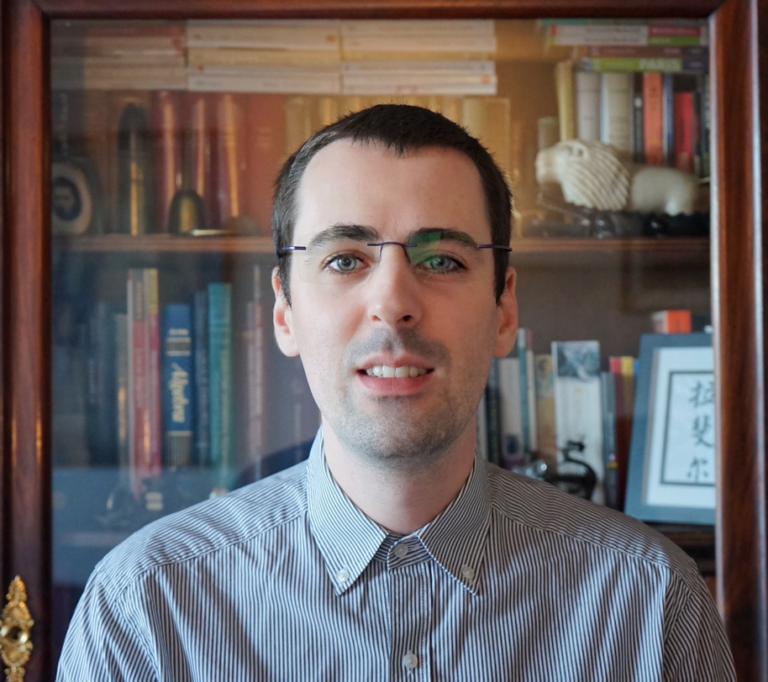
Dr. Prentki obtained his PhD in Physics from McGill University in 2021. His doctoral research focused on charge transport in low-power nanoelectronic devices, notably tunnel field-effect transistors (FETs), negative-capacitance FETs, and cold-source FETs. He studied these emerging systems using both analytical and computational methods of condensed matter and statistical physics, such as the effective mass approximation, the Landauer—Büttiker formalism, the tight-binding model, density functional theory, and the nonequilibrium Green’s function formalism.
He joined Nanoacademic in 2022; he is currently a developer for QTCAD, our newest modeling tool for quantum technologies.
Fadime BekmambetovaPh.D
Research Scientist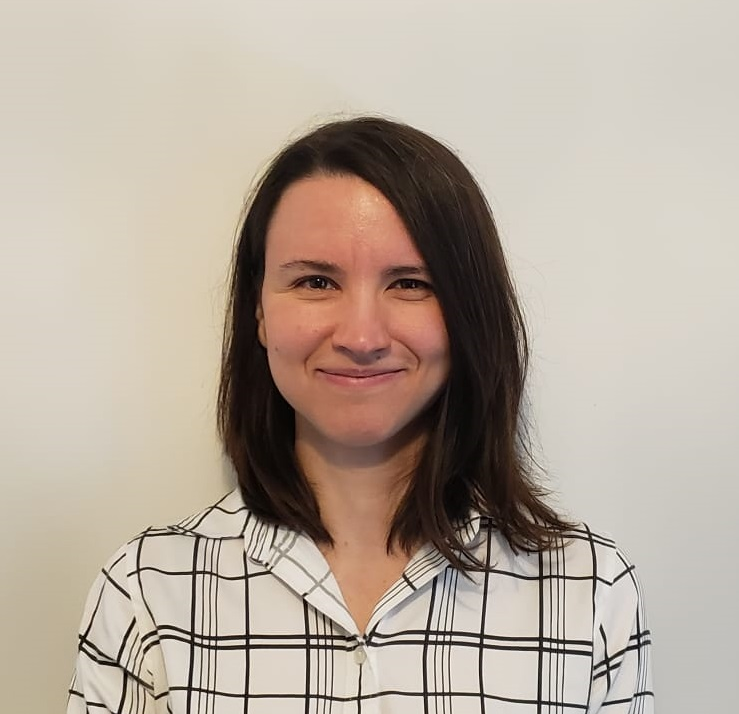
Ms. Fadime Bekmambetova obtained a Bachelor of Applied Science degree then her PhD in Electrical and Computer Engineering from the University of Toronto in 2023. The focus of her Ph.D. was on the finite-difference time-domain method for the Maxwell equations and the Schrödinger equation. Fadime has experience in model order reduction applied to circuit simulations.
She has also completed the CMC Microsystems workshop on building quantum hardware driven by her strong interest in the field.
She joined Nanoacademic in 2023, and has been focused on numerical works, especially on FE back-end dedicated to modeling devices based on quantum technologies.
Mohammad Reza MostaanB.Sc
Application Specialist
Mr. Mohammad Reza Mostaan holds a Bachelor’s degree in Civil Engineering and Physics and is currently finalizing a Master’s degree in Physics at Simon Fraser University, specializing in trapped ion quantum computing. During their graduate studies, he gained valuable experience through an internship in our company, where he conducted research on spin silicon qubits.
He joined Nanoacademic in 2024 as an Application Specialist bringing a versatile background and a deep passion for quantum technologies to fulfil Nanoacademic’s vision over current spin qubits and soon over superconducting qubits.
Alexis ChénardM. Sc
Software Developer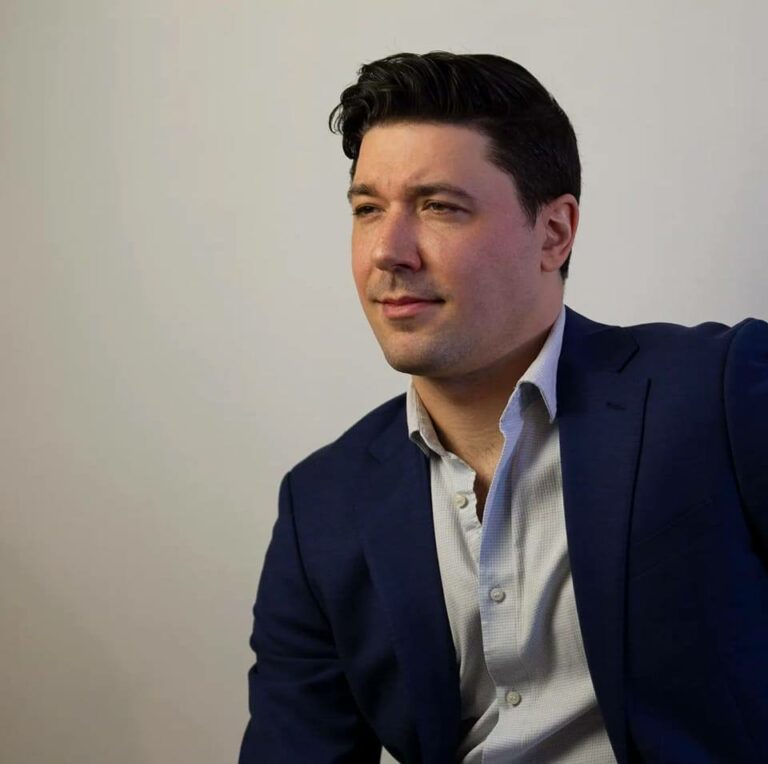
Mr. Chénard obtained his Master in Economics from Université du Québec à Montréal in 2019. His mémoire was focused on Dynamic Stochastic General Equilibrium (DSGE) models, specifically applied to the commercial relationship between the US and Canada. After a career debut as a financial advisor with the National Bank of Canada, he founded a financial simulation platform called Rodeo Financials. As CTO of the company, he oversaw the overall programming, architecture, accessibility and core design of the application.
Mr Chénard joined Nanoacademic in 2022 as a software developer to support the implementation and deployment of key infrastructure assets. His role is to ensure that the company’s software and interface websites deliver the best experience to the clients to enjoy fully the power of our simulation tools.
Brandon Tam
Software Developer
Mr. Tam after graduating from Concordia Bootcamps in 2019, has been working as a software developer. He first worked at Urbania Media where he learned about professional software development and user experience in web applications. Because of the pandemic, he switched jobs at Nanoacademic Technologies Inc.
Mr. Tam joined the Nanoacademic in 2022 as a full-stack developer, his focus has been to make current scientific software available online. He uses the latest technologies available to develop the most performant application to visualize large complex datasets of our atomistic software for example in charts and 3D plots.


